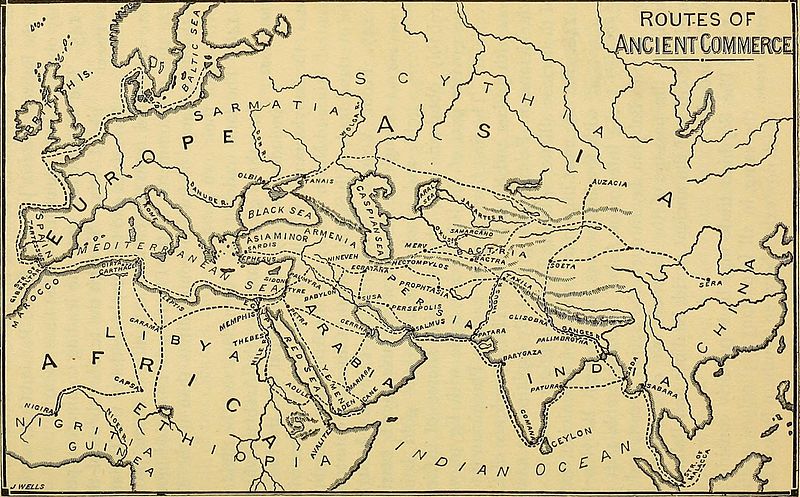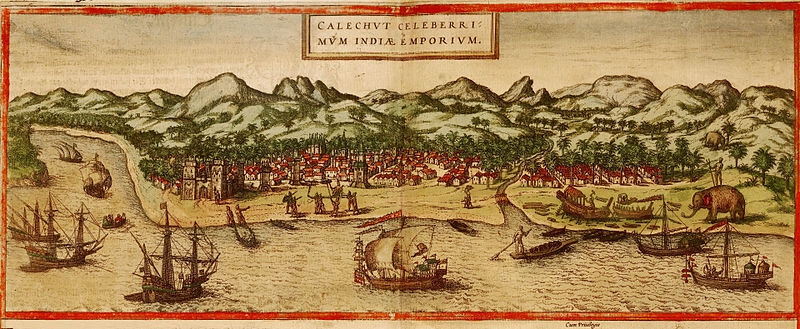The Indian nose is a connoisseur of scents. Just a whiff from a sizzling pan, tells it what’s cooking and whether it’s going to be any good. But what is the secret behind India’s fragrant, and often pungent cuisine? The answer of course, is spice. Several of them together and in just the right amounts.

Spices today are kitchen mainstays around the world but there was a time when you would think twice about using a pepper grinder. But if you still think it all started with Vasco da Gama discovering spice land, AKA India, you’d be wrong. It wasn’t like the entire continent was playing a game of hide and seek. Archaeological findings suggest that produce from India including spices reached all the way to Egypt as far back as the 1st millennium BCE! It was all thanks to Arab and Phoenician traders who sailed from the Indian coast, up the Nile, right into Alexandria. The Romans who had a taste for all things decadent are known to have bought truckloads of spices through these traders.
India not only produced its own spices, but soon became a global marketplace for spices from the Far East. Arabian traders came here to source the best spices from India and the secret spice islands of Maluku in present-day Indonesia. They were the only place you could find nutmeg, mace and cloves. They were a secret because the Arabs wanted a monopoly in the trade of these spices and didn’t want anyone beyond India to know where they actually came from.
By the 5th century, the spice routes were well established and more organized through the establishment of Islamic Caliphates. Spices started reaching Europe more easily than before. Then, in the 14th century, the Black Plague devastated Europe. Physicians declared that nutmeg was the only cure. The price of nutmeg soared. Businessmen in Europe started taking an interest in this valuable commodity. But the only way to get spices was through the Arab traders. Was there a way to cut out the middleman?

Enter the Portuguese under the command of Vasco da Gama. On 20th May, 1490, he discovered that there was a way to get to the Indian subcontinent and her delights, without going through Arabia. He returned home and came back with an army. They brutally massacred the locals and raided the city. The local king was forced to let them set up a trading outpost. The kingdom would provide cinnamon, cloves, ginger and pepper in return for gold and silver. Suddenly, the spice trade controlled for centuries by the Arabs was in the hands of the Portuguese.
By the 17th century the Dutch East India Company took over. Even the spice islands of Maluku were found and brought under their control. The Dutch took ownership of all nutmeg plantations and severely punished any native suspected of cultivating the spice privately. The brutal punishments continued, till the Dutch realised that bird droppings carried and planted the seeds throughout the islands. Afraid that one of the birds would make it beyond Maluku, they started coating the nutmegs they sold with lime, making the seeds infertile.
Then of course, the British came and practically took over everything. But if you’ve ever had English food, you’ll wonder why they were so crazy about spices. And why is pepper trumped up to be black gold and such? Well, in the good old days, there were no refrigerators. Meat was preserved using copious amounts of salt. Spices like pepper unlike red hot chillies, had just the right amount of heat to offset the salt.
But here’s another surprise, not all spices originated from the east. The sour tamarind, also known as the ‘Indian Date’, actually came from Africa. It must have been brought to Asia, several thousand years ago. But no proper Indian grandmother will agree to its or any spice’s foreign origins.
Join us on a spicy adventure of your own through our Spice Trails in Chennai and Madurai. We’ll tell you spicy tales as we walk through the local bazaars and whip some magic together in the kitchen. If you’d rather just eat till you’re stuffed, book a spot on one of our Food Trails in Chennai, Madurai and Pondicherry
Archives
- January 2022
- December 2021
- November 2021
- August 2021
- March 2021
- February 2021
- January 2021
- December 2020
- November 2020
- October 2020
- September 2020
- August 2020
- April 2020
- March 2020
- February 2020
- January 2020
- November 2019
- October 2019
- September 2019
- August 2019
- July 2019
- June 2019
- August 2017
- February 2017
- January 2017
- October 2013
Featured Posts
- Tales that pots tell: Keeladi excavations AUGUST 18, 2021
- The Last Grand Nawab: Wallajah FEBRUARY 10, 2021
- How Tej Singh became Raja Desingu of Gingee FEBRUARY 5, 2021
- How Shahjahan seized the Mughal throne JANUARY 28, 2021
- Alai Darwaza – Qutub Minar Complex, Delhi NOVEMBER 21, 2020
- Marking History through British buildings NOVEMBER 17, 2020
- The last great queen of Travancore NOVEMBER 7, 2020
- Brahmi and the evolution of scripts OCTOBER 15, 2020
- The Cambodian King of Kanchipuram OCTOBER 14, 2020
- James Prinsep – the man who read the writing on the wall OCTOBER 10, 2020
- Mariamman – the Village Goddess who travelled SEPTEMBER 30, 2020
- Misnamed Monuments of Mamallapuram SEPTEMBER 28, 2020








